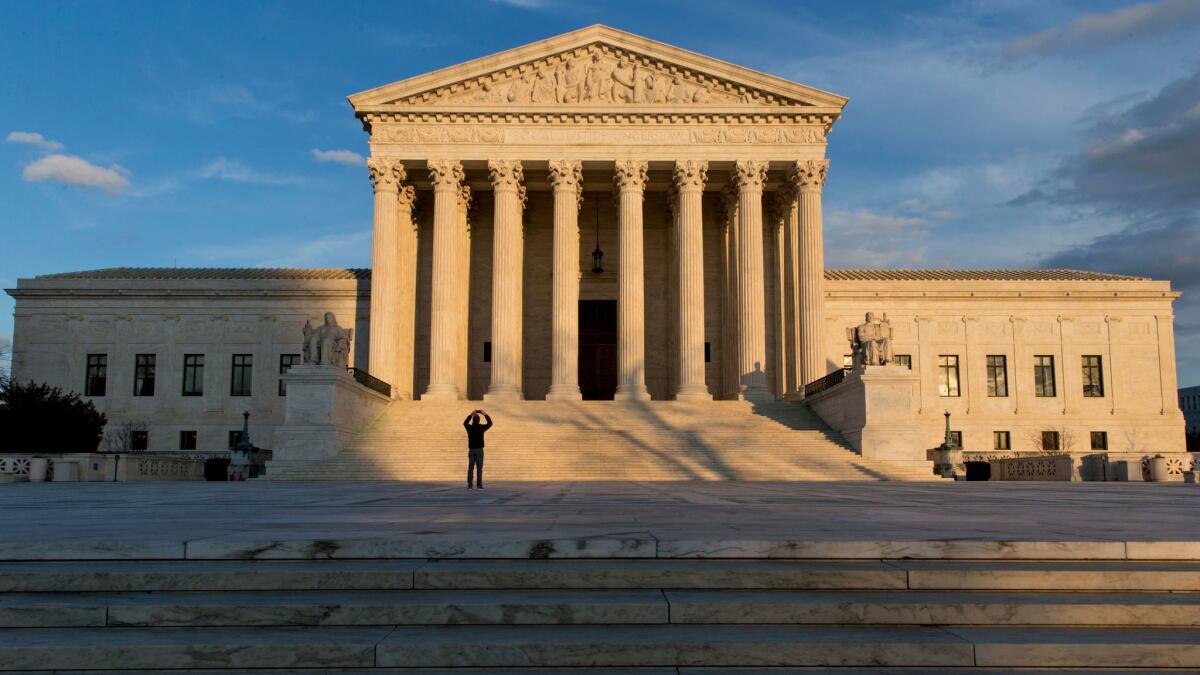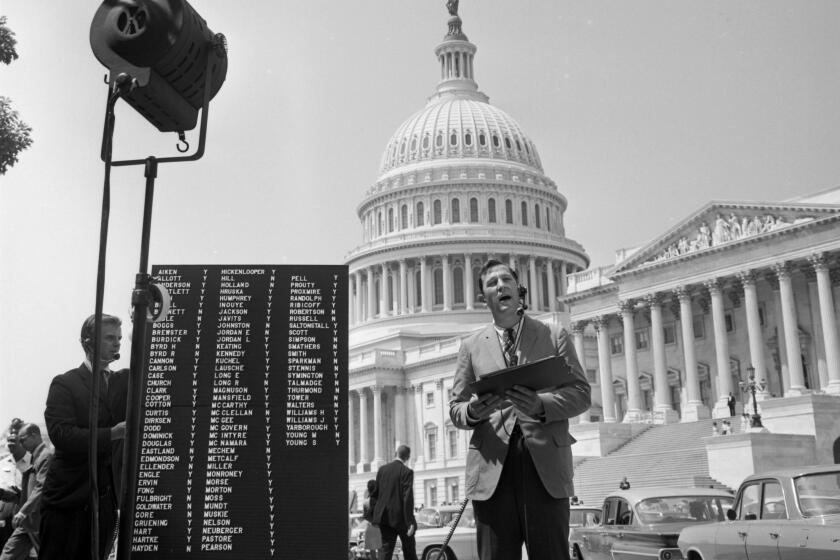Editorial: Alabama judges shouldn’t be able to override juries and issue death sentences

The U.S. Supreme Court ruled in January that only a jury has the constitutional authority to find a murder so heinous that its perpetrator deserves to be executed. But Alabama continues to use a system in which trial judges can override a jury’s recommended sentence of life in prison without parole and turn it into a death sentence. How is that constitutional? That’s what lawyers for Ronald Bert Smith, who is scheduled to die Thursday, want to know, and the Supreme Court ought to take up his case to give them an answer.
Smith was convicted in 1995 of killing a store clerk during an early morning robbery. Under Alabama’s death penalty system, after a jury finds someone guilty of murder, it then must decide if the killing involved an “aggravating” factor, such as committing a particularly brutal murder, or killing for financial gain or while fleeing arrest. Absent such a determination, the defendant is ineligible for the death penalty. If the jury finds that the crime clears that bar, it then considers potentially mitigating factors, such as the killer’s age, personal history and capacity to recognize the criminality of his actions. If the jury decides — and it doesn’t have to be unanimous — that the mitigating factors outweigh the aggravating factors, then it must recommend a sentence of life without parole. Smith’s jury did just that in a 7-5 vote, but under court rules in effect at the time, the jurors offered no details on why.
The underlying principle is a simple but important one: People accused of crimes should have their fates decided by a jury of their peers.
Unfortunately for Smith, the jury doesn’t make the final call in Alabama. That is left to the trial judge, who conducts his own hearing and, factoring in the jury’s recommendation, makes his own findings of aggravating and mitigating factors and determines whether the person should live or die. In Smith’s case, the judge overrode the jury’s recommendation and sentenced him to death.
In January, however, the Supreme Court ruled in Hurst vs. Florida that such a system violates the Constitution because “the 6th Amendment requires a jury, not a judge, to find each fact necessary to impose a sentence of death.” The underlying principle is a simple but important one: People accused of crimes should have their fates decided by a jury of their peers. The Hurst decision tossed Florida’s death penalty system into disarray, and the state has tried to rewrite its law while faced with the possibility of new sentencing hearings for nearly 400 condemned inmates. In Delaware — the only other state that allowed judicial overrides — the state Supreme Court recently ruled that Hurst made its system unconstitutional, a decision that ended the death penalty there unless the Legislature recrafts its law.
Alabama, though, stuck with it. Smith argued before the state Supreme Court that his death sentence was unconstitutional under the Hurst decision, but the court sided 7-1 with the state, which had argued that because the jury found Smith guilty of an aggravating circumstance, the requirements under Hurst were met and the judge could impose the death sentence. That’s a preposterous argument — it cherry-picks one of the jurors’ preliminary determinations and ignores their ultimate conclusion that Smith should be sentenced to life without parole. It also ignores the fact that the judge based his decision on his own findings, not on what the jury found, because the jury didn’t reveal any details. There’s no way to know if they even found the same aggravating factors were at play. On its face, the power the judge wields seems to conflict with the Supreme Court’s Hurst decision.
Capital punishment is, at its core, immoral. In practice it has been meted out disproportionately to poor people of color, and has been manipulated by craven prosecutors and lying witnesses. In Alabama, where trial judges are elected, the Equal Justice Initiative, a human rights advocacy group, has reported that judicial overrides increase during election years, which implies that some of these death sentences may be imposed not because of the facts of the case, but because of the judges’ desire to crow about how tough they are on crime.
Such fundamental flaws make the courts in general, and Alabama’s in particular, an unreliable system for determining who should live or die. As long as the death penalty exists, its application must be subject to the strictest review and respect fundamental constitutional rights. The 6th Amendment guarantees the right to a trial by a jury of one’s peers, and the courts have ruled that the finding of facts that lead to a death sentence are the purview of those peers, not the judge. The Supreme Court should now accept Smith’s appeal and, ultimately, shut down Alabama’s skewed and unfair capital punishment system.
Follow the Opinion section on Twitter @latimesopinion or Facebook
More to Read
A cure for the common opinion
Get thought-provoking perspectives with our weekly newsletter.
You may occasionally receive promotional content from the Los Angeles Times.






